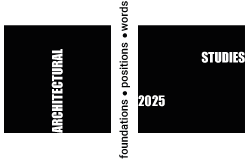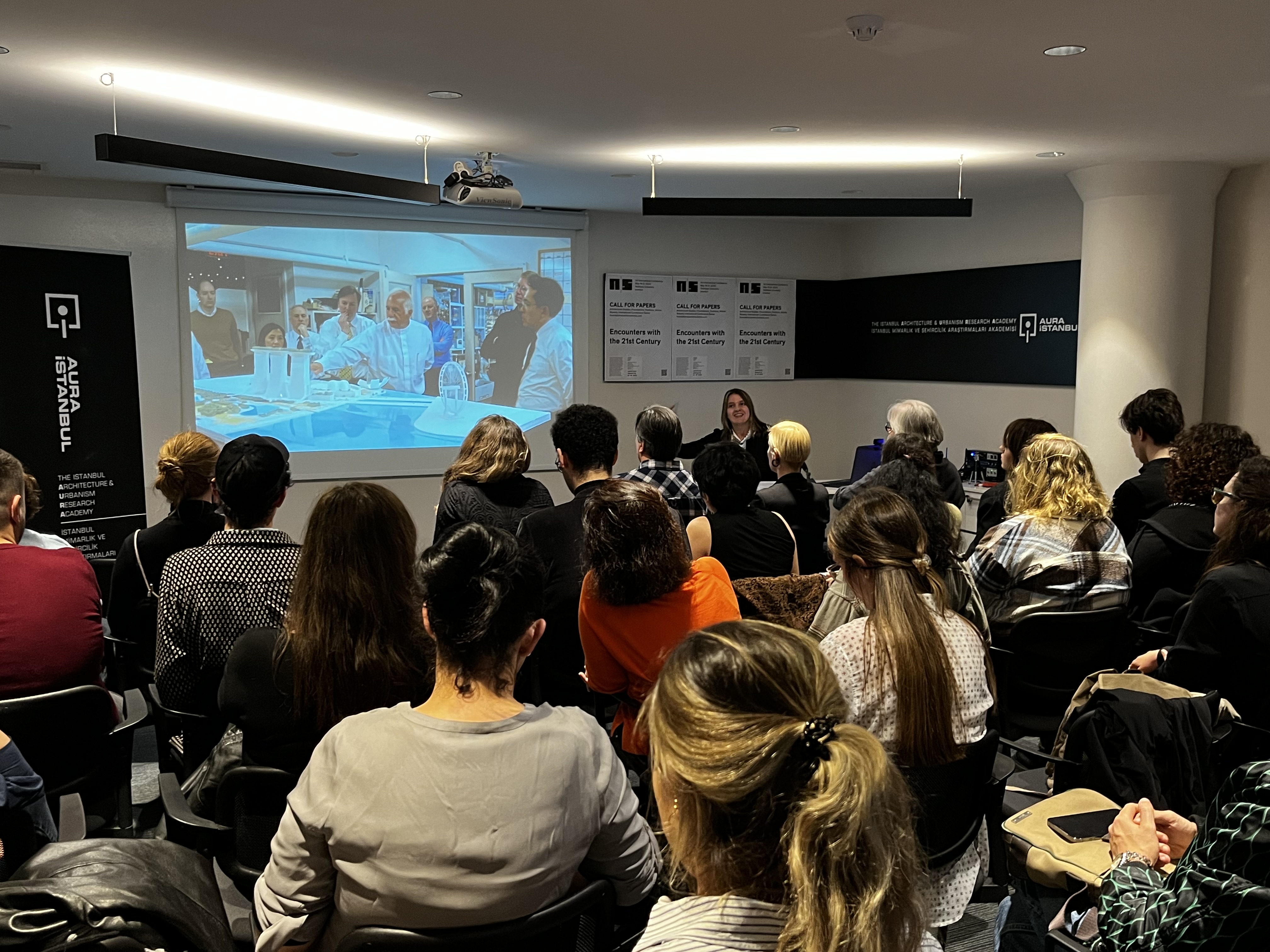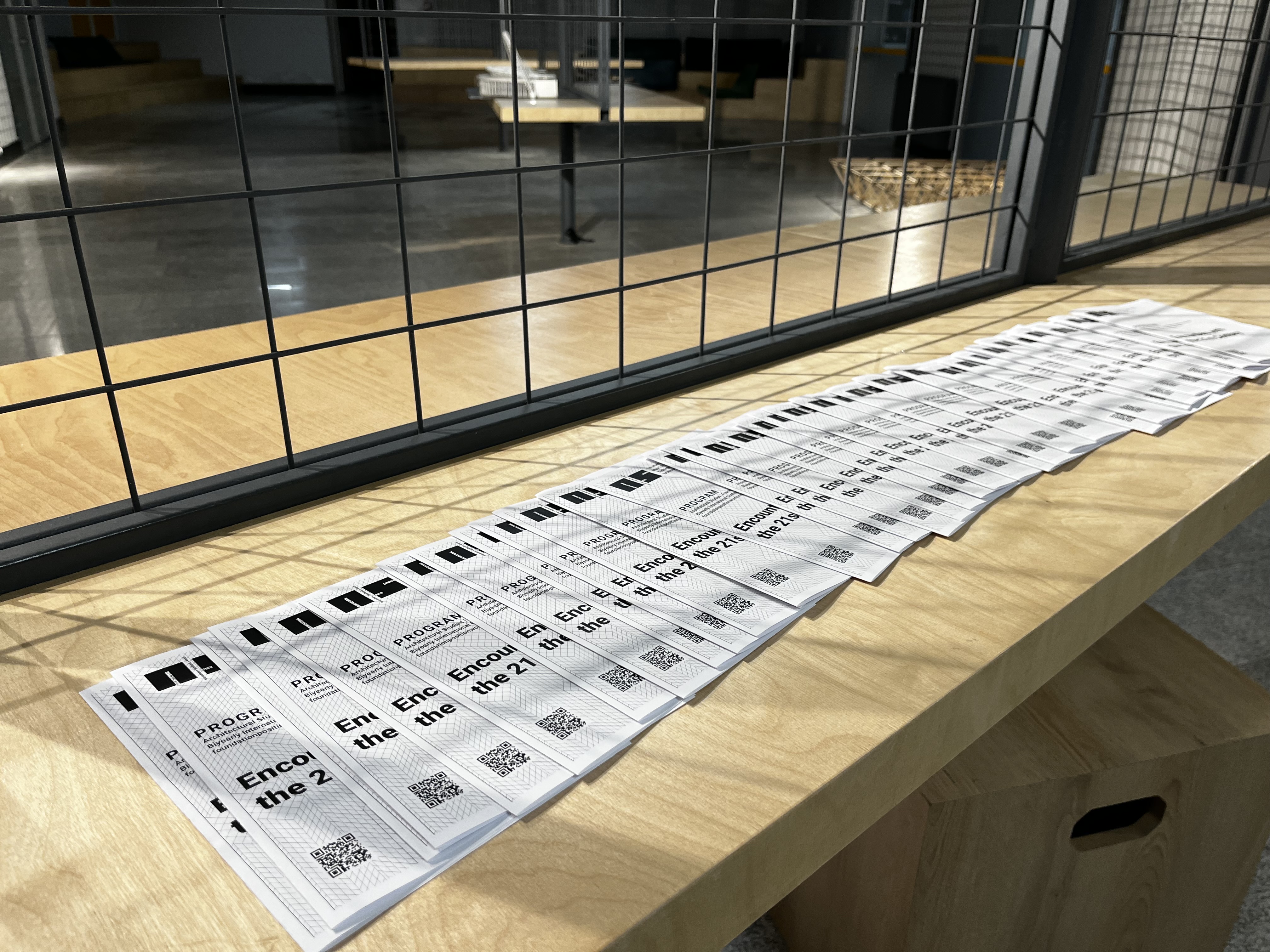1st International Conference | May 19-21, 2023 - COMPLETED!
Encounters with
the First Two Decades of
the 21st Century
CLICK HERE to download 1st International Conference proceedings. “Encounters with the First Two Decades of the 21st Century”, 2023.
CALL FOR PAPERS - The first Architectural Studies Conference takes encounters with the recent past of architecture focusing mainly on the first two decades of the 21st Century. While this time period witnessed a vast increase in the number of architectural research with a rich variety of approaches, such an increase concurrently rendered evaluating possible implications more difficult. The incentive to bring together and designate an agenda of architectural theories, arguably, has left its place to respond to urgent crises regarding ecology, violent conflicts, economic ambiguity, digital dependence, social injustice, and discrimination through gender and postcolonial theories as well as many others, thereby making the task of a possible articulation of architectural research methods a rather delicate one. The first of the conference series aims to bring together studies that present possible ways of doing research through the theme of encounter.
The word ‘encounter’ has a number of connotations. An encounter may be accidental or intentional, spontaneous or preplanned, as well as confrontational or conforming. A researcher of architectural studies may look into a particular topic, an anecdote, a design practice, or even a piece of writing that already depicts an encounter within the 21st Century architectural culture. However, papers that deliberately invent and execute such confrontations are also encouraged.
The subcategory of Foundations entails issues that take deep-rooted ground, context, and conditions of architectural thought and practice into their focus. Foundations of the encounters with the past two decades may connote the setting of architecture’s context in terms of globalized networks, regional and local territories, modes of production and reproduction as well as geographies, and implicit or explicit social conflicts and displacements in various scales. Papers in this subcategory may address architecture’s relationship to space, place, temporality, and materiality. Possible keywords may be listed as transnationality, globalization, networks and infrastructures, new ways of mapping the world, visualization and collection of data, architectural program and changing functions, city context, abandoned sites, contemporary ruins, environmental decay, immigration, displacement, and minorities, right to the commons, the question of accessibility, new forms of discrimination as well as public vs. private spaces.
The title Positions refers to architects’ or researchers’ approaches in making or discussing architectural practices of the 2000s. Within this rubric, discussions around architects’ roles are as relevant as scholars’ confrontation with architectural theories of the past. In this regard, investigations on architects’ design decisions, the challenging of architecture’s limits in the face of a designated problem, or scholars’ ways of theorizing architecture are welcome. Suggested keywords are theory as practice, design decisions, concepts, disciplinary and interdisciplinary ideas, the urgency of sustainability, greenwashing, tectonics and materiality, limits and possibilities of parametric design, architects as actors, scholars vs. professionals, and new approaches to architectural education.
Words as a subcategory invite participants that focus on the writing and documentation of architecture. Conforming or opposing literature on architectural criticism, architectural utopias, architecture’s narration, its representation belong to this subgroup. The idea of an encounter, in this context, may be with a text, a structure or a debate, revealing a method or a possibility within the 21st Century architectural discourses. The subcategory Words could include studies with keywords such as criticism; changing forms of narration in architecture; written, visual or auditory (sonic) documentation of/in architecture; new connotations of utopian thinking, convictions and the social imaginary, the question of representation as well as architects’ take on other architects.
The first Architectural Studies Conference, which will be held on 19-21 May 2023, calls for contributions that confront architecture and its culture through three sub-categorical frameworks; foundations, positions, and words. The conference invites scholars, researchers as well as practitioners from around the world to share their works and ideas.


